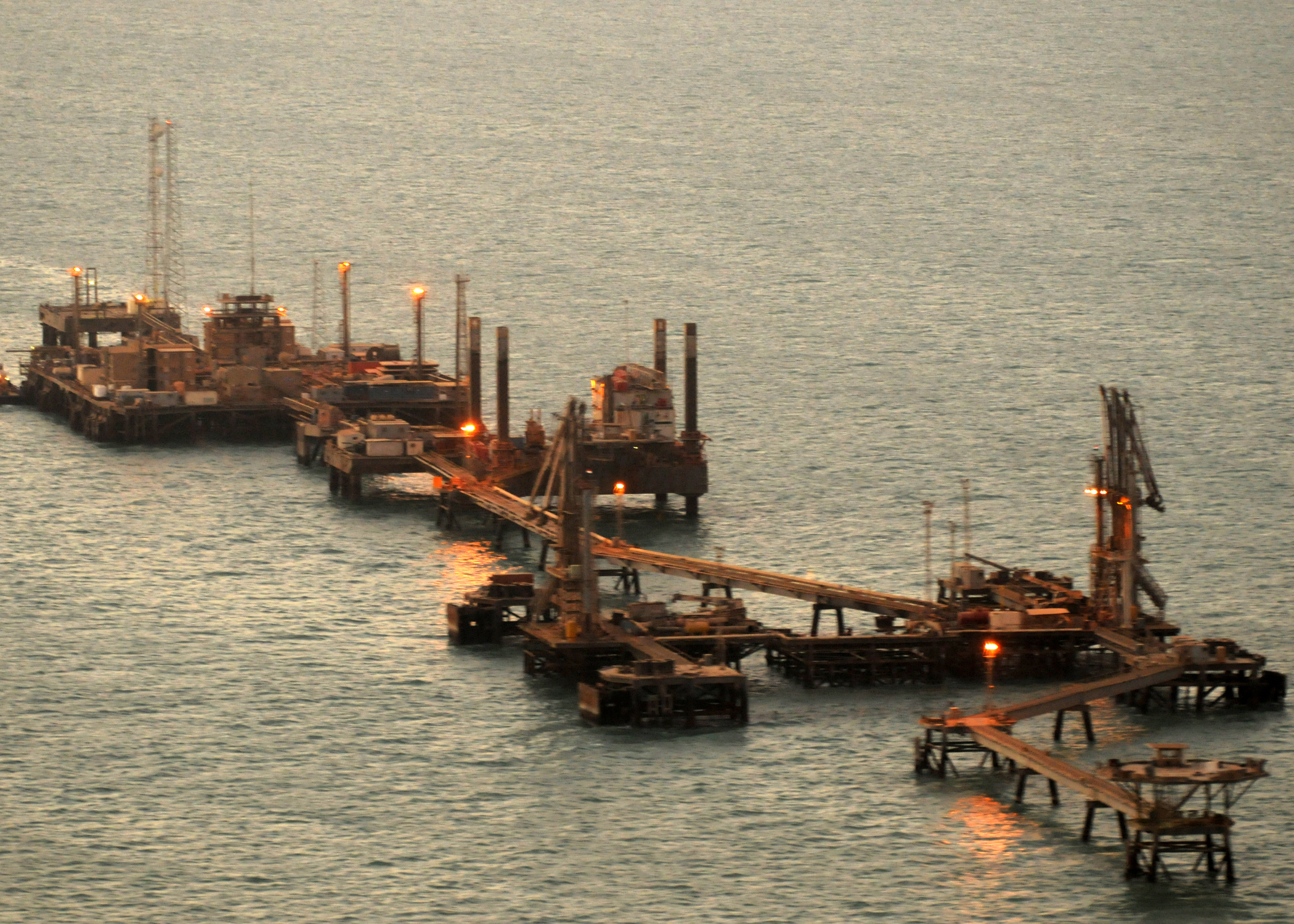
Al Başrah Oil Terminal
The price of oil, well over US$100 per barrel in June 2014, has since halved. As a result, some states that relied on oil revenue for government budgets are now struggling to provide services to their populations.
In Iraq, one of the services that cannot be effectively provided is security.
The country’s inability to sufficiently finance its military’s campaign against the Islamic State Group (IS) prompts religious and ethnic groups to assume a greater burden themselves. This further instils tensions in the country. Iranian funded Shi’a paramilitary militias have been most successful in challenging the Islamic State Group, but their presence sparks fear among Sunni Arab populations, and contributes to the susceptibility of this population to IS recruitment. The self-funded Sunni tribal militias, while less effective, in part due to inferior weapons, have also assisted the Iraqi military. Their presence, however, brings up the controversial question of how Sunni groups will eventually join the Iraqi security services in an official capacity.
Oil-related budgetary issues also impact the Kurdish Peshmerga force’s capabilities in fighting the Islamic State Group. The Kurdish Regional Government (KRG) in Erbil claims that the federal Iraqi government’s failure to promptly transfer sufficient budgetary funds to the Kurds, in exchange for the Kurds increasing their levels of oil production within the Iraqi federal framework, has prevented the KRG from being able to pay Peshmerga salaries. Baghdad has said that the lower oil price makes payments, at the levels which the Kurds expect, impossible. The Peshmerga are key in defending the Kurdish region, in particular the city of Kirkuk, which would grant IS an increased oil production capacity of 1 million b/d.
In order to mitigate the revenue loss from low oil prices, the Iraqi government has increased its oil production levels. In April, oil exports reached over 3 million b/d, but the Iraqi budget still suffers, and by consequence, so do the Iraqi security forces.
This reality is contrasted by the Islamic State Group harnessing oil revenue to strengthen its own finances and security capabilities. According to Bloomberg, earlier in 2015, before international coalition’s air strikes began, IS’ total oil earnings were estimated at US$1 million per day. Since then its oil earnings have been reduced by two thirds. IS smuggles oil out through Turkey, Jordan, and Syria and earns another US$4 million through other activities.
At its height, in the summer of 2014, IS controlled four oil fields and produced 15,000 b/d. When it was ousted from Tikrit, it was left with only 5% of the oil production capability that it had before. the Islamic State Group now only controls one oil field, Qayara, with only 2,000-3,000 b/d production. The bulk of Iraq’s oil production derives from southern Iraq which is majority-Shi’a, and still far from IS control. But the Islamic State Group still continued to target the 310,000 b/d capacity Baiji refinery – which is the largest and most important in the country and lies 225 kms north of Baghdad.
As a major oil producer, a fall in Iraqi oil production impacts the international price of oil. When Mosul fell to IS in June 2014, oil prices increased by 6%. However over 90% of Iraq’s oil production comes from predominantly Shi’a south which still lies outside IS’ control.
While oil prices are unlikely to significantly increase in the short term, the Islamic State Group’ access to oil funded revenue may be decreasing. The international coalition’s air strikes have significantly damaged the oil fields under its control, which has reduced its production capacity and therefore its major source of revenue.
Then again, this damage to Iraq’s oil industry — in addition to the Islamic State Group’ scorched earth tactic of destroying the oil infrastructure when its retreats — will have an impact on the Iraqi government’s ability to earn revenue, and fund itself from future instability and unrest.
– Toba Hellerstein, Director of International Business Development, Menas Associates
For a free copy of Menas Associates’ Iraq Strategic Focus please contact us. Or if you would like to gain more information in Iraq then why not request a free sample of our Iraq & Kurdistan Focus publication.


